The Role of Kindness in Cancer Care
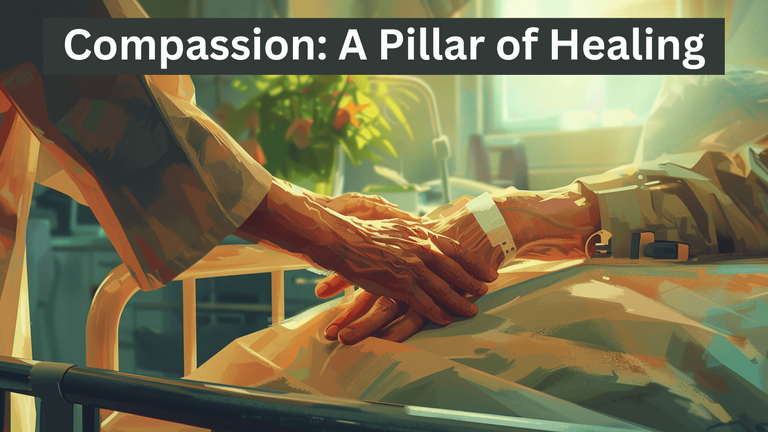
Today, we are exploring the significance of kindness in cancer care and how it can have a positive impact on those affected by cancer. Kindness can bring comfort during tough times and make the cancer journey easier for patients and their loved ones. Kindness is often seen as a soothing balm for the soul and can offer solace, particularly while facing physical and emotional challenges.
Research has shown that a compassionate approach from healthcare providers can uplift spirits, promote resilience, and potentially contribute to the healing process for those battling cancer. Kindness is identified as a pivotal aspect of cancer care, as it fosters trust, improves communication, and creates a supportive environment that can positively impact patients' overall well-being and treatment journey.
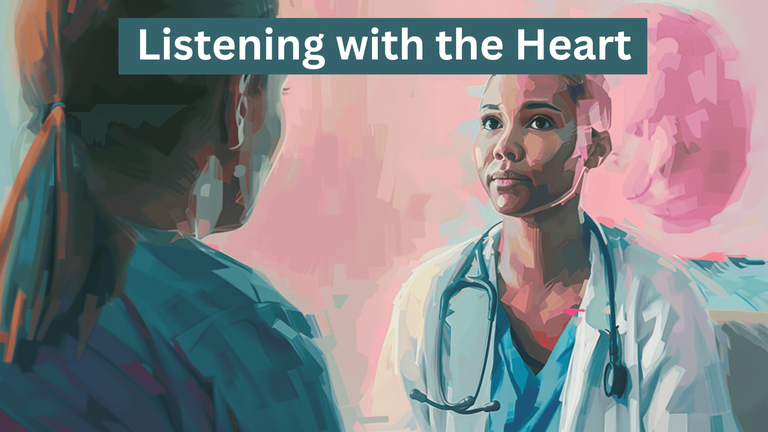
The Importance of Compassionate Care in Cancer Treatment
Kindness and kind acts play a significant role in cancer care, as highlighted in the article "Role of Kindness in Cancer Care." The authors emphasize that high-touch care, characterized by simple acts of kindness, can complement high-tech cancer treatments effectively.
They propose six types of kindness in cancer care:
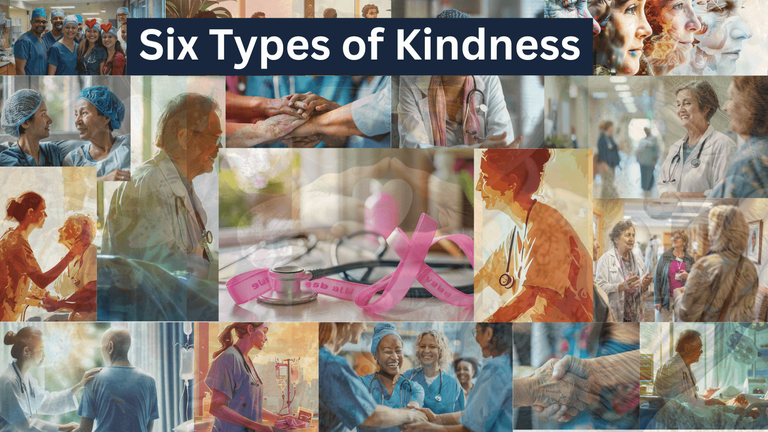
Deep Listening: This involves attentively hearing and understanding a patient's concerns, fears, and needs without judgment. Clinicians take the time to truly understand the needs and concerns of patients and their families.
Empathy: The ability to share and understand the feelings of another, putting oneself in their shoes to provide comfort and connection. Expressed by both individual clinicians and the care culture, seeking to prevent avoidable suffering for the patient with cancer.
Generous Acts of Discretionary Effort: The care team going above and beyond to perform acts of kindness that can provide relief or joy to patients and families during cancer treatment.
Timely Care: Providing medical attention and support exactly when it is needed, minimizing delays in care that can lead to increased stress for patients.Delivered using various tools and systems that reduce stress and anxiety.
Gentle Honesty: Conveying the truth directly in well-chosen, guiding words about diagnoses, prognoses, and treatments in a way that is considerate of the patient's emotions and well-being.
Support for Family Caregivers: Acknowledging the significance of the physical and mental well-being of family caregivers as they provide care to their loved ones. Providing assistance and resources to individuals caring for cancer patients, recognizing their crucial role and the challenges they may face.
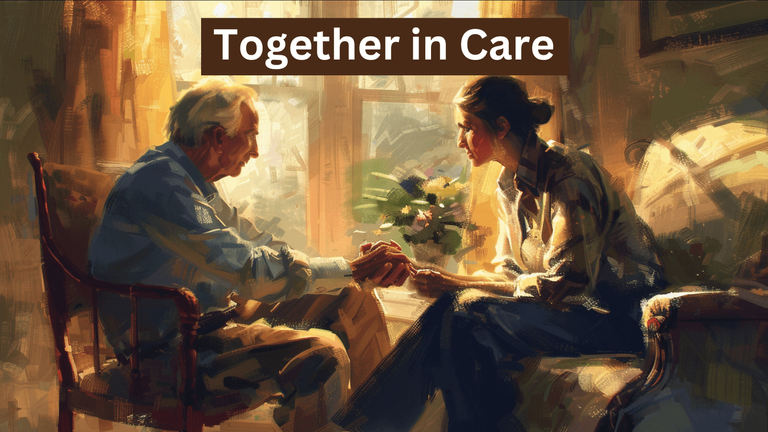
These kind acts reduce negative emotions linked to cancer diagnosis and treatment, potentially improving patient outcomes. The article highlights the importance of compassionate care in easing the emotional challenges of cancer for patients, their families, and healthcare providers.
Empathy and Kindness in Cancer Treatment
We find more evidence for this claim in another article titled “How Kindness Can Make a Difference in Cancer Care.” The article further details how kindness plays a vital role in the treatment of cancer. Small gestures of kindness can have a significant positive impact on the emotional well-being of patients. Compassionate medical care can enhance recovery, alleviate pain and stress, and lead to shorter hospital stays.
Kindness encompasses qualities such as attentive listening, empathy, transparency, and encouragement for caregivers. It contributes to addressing emotional needs, fostering trust, and enhancing the overall quality of care. Practicing kindness enables healthcare providers to deliver comprehensive and empathetic cancer treatment that demonstrates care and understanding.
Humanizing High-Tech Treatment

The technology used in cancer treatment has improved a lot over the years, helping patients in many ways. But it's also important to remember to treat patients with kindness and care. Along with all the fancy technology, it's crucial to show empathy, understanding, and support to people fighting cancer. By adding a personal and caring approach to the high-tech treatments, doctors and nurses can make patients feel more comfortable, supported, and cared for during their tough battle against cancer.
Kindness From Medical Staff
Receiving kindness from medical staff, whether it's a comforting gesture from a nurse or a reassuring touch from a doctor, holds significant value in cancer care. Research shows that compassionate care can improve patient satisfaction and help with pain management. The essence of kindness intertwines with the healing journey, transcending mere interactions and creating a nurturing environment.
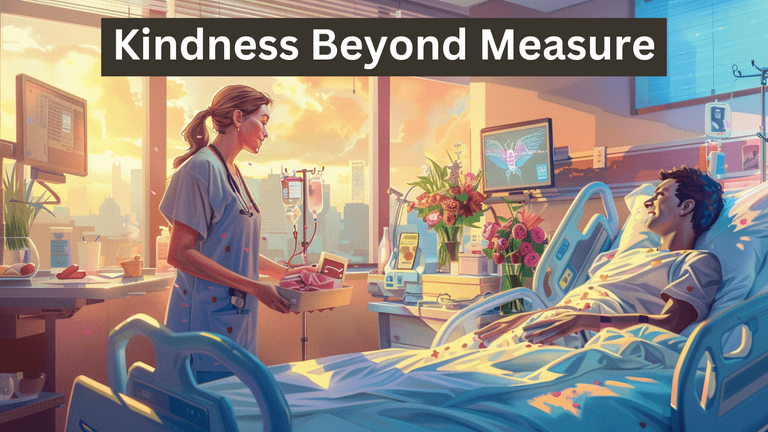
Creating a culture of compassion through support groups and community initiatives is essential for individuals facing cancer. Each act of kindness, no matter how small, holds great significance and can deeply influence those battling cancer. Kindness is more than just a gesture; it is a vital element that can significantly impact the well-being of patients. Instances illustrating the power of kindness are:
Examples of the impact of kindness include:
Emotional Support: Acts of kindness offer emotional support to individuals battling cancer, easing their stress and enhancing their mental well-being. \
Social Support: Providing help and support through kind gestures strengthens social connections, which are crucial for emotional health. \
Quality of Life: Kindness plays a pivotal role in enhancing the quality of life for cancer patients by cultivating a positive atmosphere and assisting with daily tasks, thus lightening their burden. \
Coping Mechanism: For caregivers and loved ones, practicing kindness serves as a coping mechanism to deal with the emotional challenges associated with supporting someone through cancer.
Although kindness itself may not cure cancer, its supportive role is substantial in ensuring the overall care and well-being of individuals navigating the complexities of the disease.
Cancer Support Resources
Various cancer support resources are available both in the United States and globally. Internationally, organizations such as The International Cancer Foundation, The Union for International Cancer Control, The International Myeloma Foundation, World Cancer Research Fund International, and The Cancer Survivors Network provide support through various resources and programs to enhance cancer care and improve the quality of life for individuals impacted by cancer.
In The United States
The Cancer Support Community offers free, personalized support to anyone impacted by cancer, including patients, survivors, caregivers, and loved ones. They provide assistance through their Cancer Support Helpline, which offers phone and online navigation services for individuals seeking help with their cancer experience. To contact them, one can reach out to the Cancer Support Helpline by calling (888) 793-9355.
https://www.cancersupportcommunity.org/
The National Cancer Institute provides emotional, practical, and financial support services for individuals with cancer and their families. They offer a wide range of resources to help cope with the challenges of cancer. To contact them, individuals can call the Questions About Cancer helpline at 1-800-4-CANCER or access LiveHelp Online Chat for assistance.
https://supportorgs.cancer.gov/home.aspx?js=1
The National Comprehensive Cancer Network (NCCN) is a not-for-profit alliance of 33 leading cancer centers dedicated to improving cancer care for all patients. They provide support through continuously updated cancer care recommendations, education programs, policy advocacy, and global resources. Patients, healthcare providers, researchers, and policymakers can benefit from their services. To contact NCCN, you can visit their website at nccn.org or reach out by phone at 215-690-0300.
https://www.nccn.org/
The American Cancer Society provides support to cancer patients, caregivers, and family members by offering cancer-related information, referrals to patient-related programs, donations assistance, volunteer opportunities, and emotional support. They can be contacted via phone at 1-800-227-2345 or through live chat on their website. Additionally, they have trained Cancer Information Specialists available 24/7 to provide accurate and up-to-date information to help individuals make informed health decisions.
Worldwide/Globally
The International Cancer Foundation (ICF) provides support through practical training for oncologists in under-resourced countries, grants for fellowships and surveys, as well as prevention and public education resources for patients. They aim to enhance cancer prevention, diagnosis, treatment, and follow-up in countries where these services are needed. To contact the ICF, you can email them at [email protected] or call them at +41 91 973 19 00.
The Union for International Cancer Control (UICC) provides support to its member organizations by offering learning and development opportunities, privileged access to events, and voting rights in the General Assembly. They aim to reduce cancer incidence, morbidity, and mortality, while improving the quality of life for cancer patients through evidence-based interventions. To contact UICC for more information or support, you can reach out to them via email at [email protected] or by phone at +41 22 809 1811. https://www.uicc.org/
The International Myeloma Foundation (IMF) offers a wide range of support services to individuals affected by multiple myeloma, including patients, caregivers, and families. They provide resources such as counseling, education, financial assistance, practical help, and support groups. Those in need of assistance can contact the IMF through their InfoLine at the following numbers:
U.S. & Canada: 800-452 CURE (2873)
Worldwide: 1-818-487-7455
https://www.myeloma.org/cancer-organizations-resources
World Cancer Research Fund International provides support by funding life-saving research, influencing global public health policy, and educating the public on how diet, weight, and physical activity impact cancer risk. They offer support to individuals seeking to reduce their risk of developing and surviving cancer. To contact them, you can reach out to WCRF International at their office located at Upper Ground Floor, 140 Pentonville Road, London N1 9FW or call them at +44 (0)20 7343 4200.
https://www.wcrf.org/
The Cancer Survivors Network (CSN) is a peer support community that offers a safe space for cancer patients, survivors, caregivers, families, and friends to connect with others who share similar experiences and interests. The organization provides support through discussion boards covering various cancer types and lifestyle topics. Those interested can seek support, share experiences, and find valuable information on the CSN website. To contact CSN or access their resources, individuals can visit their website at cancer.org.
The American Cancer Society focuses on providing global cancer control initiatives in low- and middle-income countries. Their efforts include cancer prevention, treatment, and patient support. They work closely with Ministries of Health, hospitals, and civil society partners to make a significant impact. Those in need of support or information can contact them through various channels, such as calling 800.227.2345, signing up for email updates on their website, or engaging in live chat when available.
https://www.cancer.org/about-us/our-global-health-work/cancer-care-patient-support.html
The American Cancer Society provides global patient support through initiatives like Patient Navigation and EQUIPPED, offering guidance, education, and resources to cancer patients, caregivers, and healthcare providers in low- and middle-income countries. They aim to reduce barriers to care, improve health outcomes, and provide culturally relevant cancer education. To learn more or seek support, individuals can contact the American Cancer Society at [email protected].
https://www.cancer.org/about-us/our-global-health-work/cancer-care-patient-support.html
Now, here are some additional ideas for kind acts you could do. I have also included some ideas for ways to show some love and kindness to yourself. Remember You Matter!
Additional Kindness Challenge Ideas - Choose or Add Your Own
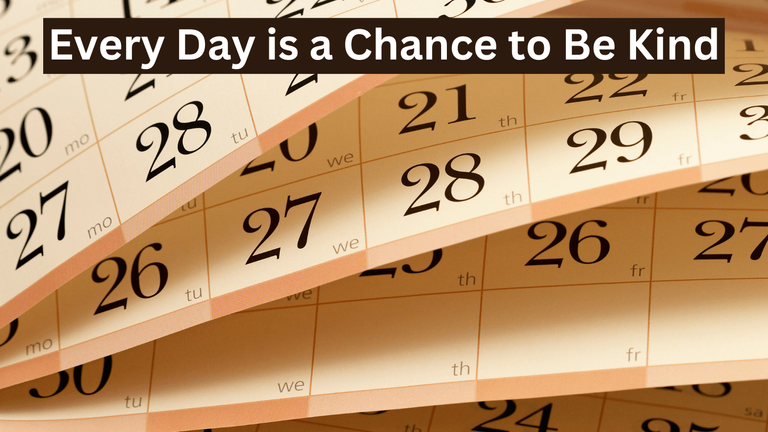
- Hand Out “You Matter” Cards
- Collect donations for a local charity.
- Be a mentor to someone in need.
- Help out at a local school or after-school program.
- Serve meals to the homeless at a local shelter or church.
- Help Older People With Their Grocery Shopping
- Pick up trash when you see it, even if it is not yours.
- Leave A Nice Tip
- Hold The Door Open For Someone
Here Are Some More Ideas for Self Kindness
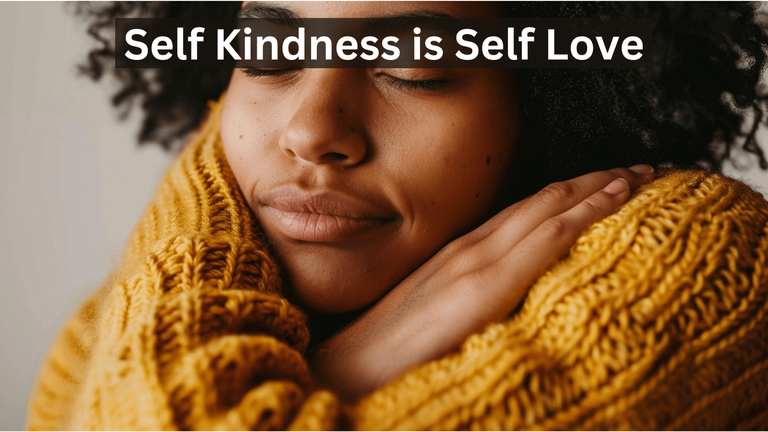
- Prepare a healthy and delicious meal for yourself. Cooking can be a therapeutic activity that nourishes both body and soul. 🥗
- Take a short walk during your break today. Fresh air and a change of scenery can rejuvenate your mind and body, giving you a fresh perspective. 🚶♂️
- Disconnect to reconnect. Take a digital detox for an hour or more. Stepping away from screens allows you to recharge and focus on your well-being. 🌳
- Treat yourself to a homemade spa day with DIY face masks, scrubs, and pampering treatments. 💆♀️ Nourish your skin and indulge in self-care rituals that make you feel radiant.
- Listen to your favorite music and let the melodies uplift your mood and soothe your soul. 🎶 Allow yourself to get lost in the rhythm and find comfort in the power of music.
- Get lost in a creative project, whether it's painting, crafting, or writing poetry. 🎨 Allow yourself to express your innermost thoughts and feelings through art.
- Schedule a virtual coffee date with a friend or loved one. ☕️ Connect over video chat and enjoy meaningful conversations that uplift your spirits and strengthen your bond.
- Write yourself a love letter or affirmation, highlighting your strengths, resilience, and inner beauty. 💌 Practice self-compassion and celebrate the unique qualities that make you special.
- Declutter one small space in your home – even a drawer or shelf. Let order create calmness. 🧹
Well that's all for today, come back again tomorrow for another kind fact and challenge.
Remember to be kind to yourself as well as others! 🧡
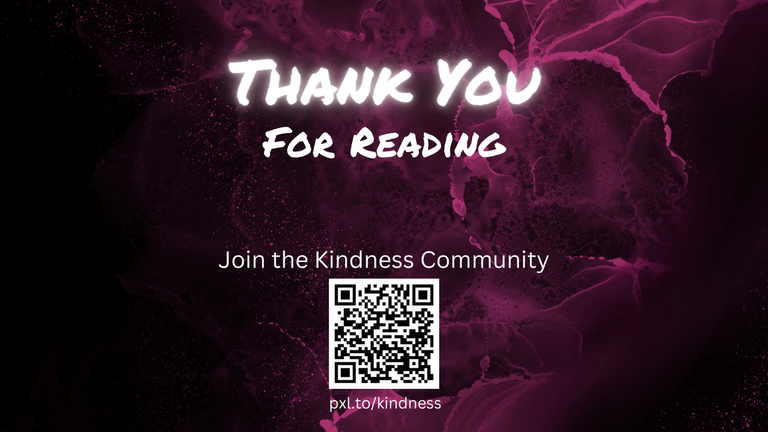
👇Share Your Thoughts Below👇
#kindness #cwh #dreemkindness #dreemport #dreemforlife #hivekindness #kindnesschallenge #kindnessmatters #cancer #mentalhealth #pob #wellness
Images created using MidJourney, Dal-E, and Canva. I hold a commercial license for each one.
The campaign against stigmatization and avoidance of HIV positive patients made me realize, Isolation and neglect kills faster than the ailment itself. Nice article 🌹💐🪷🌺🌷🌼💮🌸🏵️🌻
Yes, that was a huge reason I had so much respect for Princess Dianna. She would sneak off and visit aids patients, hold thier hands and try and raise awareness. Isolation is terrible.